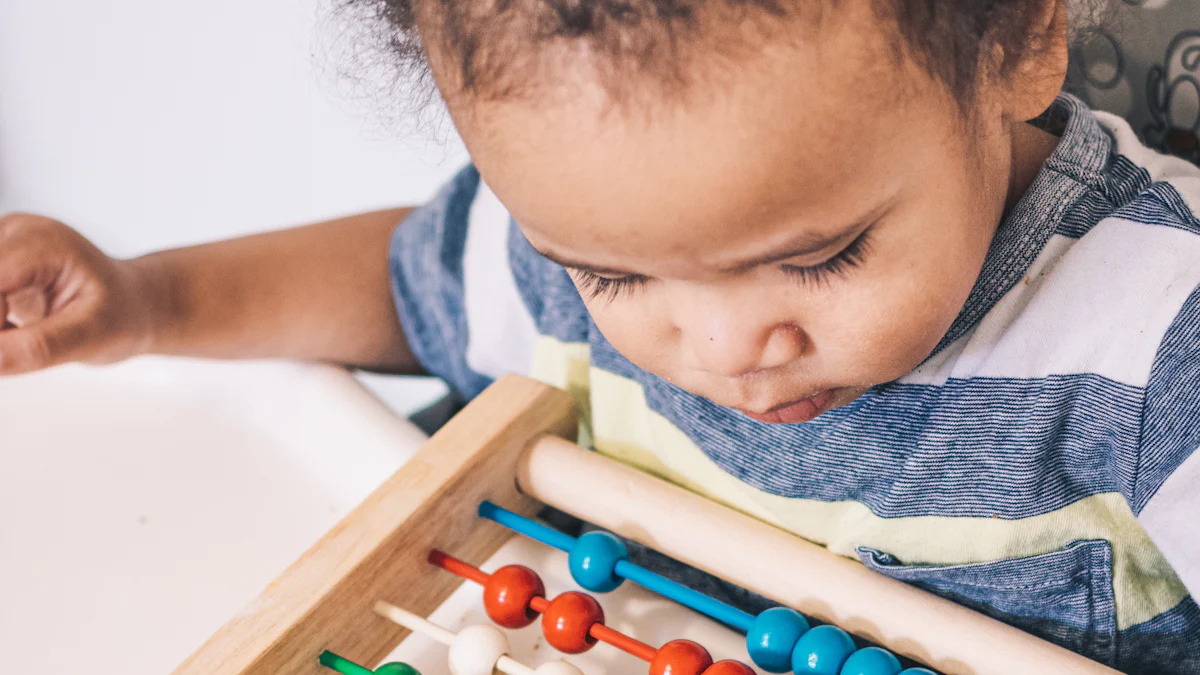The Role of Praise and Encouragement in Raising Confident Kids

Understanding praise and encouragement plays a vital role in raising confident kids. Praise focuses on achievements. Encouragement highlights effort. Both approaches impact child development. Praise can boost self-esteem. Encouragement nurtures resilience. Each method shapes a child's confidence and motivation. Parents and childcare professionals must grasp these concepts. This knowledge empowers you to support children effectively.
Understanding Praise
Definition of Praise
Praise involves expressing approval or admiration for achievements. Parents often use praise to recognize success. Praise focuses on the outcome rather than the effort.
Characteristics of Praise
Praise often sounds enthusiastic and immediate. Words like "Good job" and "Great work" are common. Praise highlights accomplishments and results. Praise tends to be specific to tasks completed.
Common Examples of Praise
Parents might say "Good job" when a child finishes homework. Teachers might use "Great effort" after a successful project. Coaches often shout "Well done" during sports events.
Effects of Praise on Children
Impact on Self-Esteem
Praise can boost self-esteem temporarily. Hearing "Good job" makes children feel valued. However, over-reliance on praise may Burst That Self-Esteem Bubble. Praise focused on outcomes can create pressure.
Influence on Risk-Taking Behavior
Praise encourages children to seek approval. Children might avoid challenges to maintain praise. Fear of failure can limit exploration and growth. Praise can sometimes hinder risk-taking.
Research Insights on Praise
Studies on Praise and Development
Research by Dweck shows praise impacts motivation. Praise focused on intelligence can discourage effort. Effective praise encourages a growth mindset. Praise should support Early Learning and development.
The Role of "Good job" in Child Behavior
"Good job" reinforces behavior but may limit creativity. Frequent use can lead to dependency on approval. Effective praise should balance recognition with encouragement. Growing Great Kids Curriculum includes strategies for balanced praise.
Understanding Encouragement
Definition of Encouragement
Encouragement involves providing support and confidence to children. Encouragement focuses on effort and progress. Parents use encouragement to motivate children. Encouragement helps children build self-belief. Encouragement fosters a sense of capability in children.
Characteristics of Encouragement
Encouragement emphasizes effort over results. Encouragement uses language that inspires perseverance. Words like "You worked hard" and "Keep trying" are common. Encouragement highlights the process rather than the outcome. Encouragement promotes a growth mindset in children.
Common Examples of Encouragement
Parents might say "You put in a lot of effort" when a child struggles with homework. Teachers might use "You can do it" to motivate students during challenging tasks. Coaches often say "Keep pushing" to encourage athletes during practice.
Effects of Encouragement on Children
Impact on Self-Esteem
Encouragement boosts children's self-esteem by focusing on their abilities. Encouragement helps children feel valued for their efforts. Children develop a positive self-image through encouragement. Encouragement nurtures a belief in personal growth. Encouragement leads to a stronger sense of self-worth.
Influence on Risk-Taking Behavior
Encouragement fosters resilience in the face of obstacles.
Research Insights on Encouragement
Studies on Encouragement and Development
Research shows encouragement positively impacts child development. Encouragement enhances motivation and persistence in children. Studies reveal that encouragement builds confidence and grit. Encouragement supports emotional and cognitive growth. Encouragement contributes to long-term success and well-being.
Encouragement plays a crucial role in building resilience.
Encouragement plays a crucial role in building resilience. Children learn to overcome setbacks through encouragement. Encouragement teaches children to view failures as learning opportunities. Resilient children adapt better to changes and challenges. Encouragement prepares children to become future ready.
Key Differences Between Praise and Encouragement
Comparative Analysis
Focus on Effort vs. Outcome
Praise and encouragement serve different purposes in child development. Praise often centers on the outcome of a task. Parents might say "Good job" when a child wins a game. This type of praise highlights the result. Encouragement, however, emphasizes effort. Parents might say "You worked hard" when a child tries their best. This approach values perseverance over results. Understanding this difference helps you support children more effectively.
Long-Term vs. Short-Term Effects
Praise can provide immediate satisfaction. Children feel happy when they receive praise. However, praise may not always lead to long-term benefits. Children might rely on external approval for self-worth. Encouragement offers lasting effects. Encouragement fosters internal motivation. Children learn to value their own efforts and growth. This approach builds confidence that lasts a lifetime.
Implications for Child Development
Building Resilience
Encouragement plays a key role in building resilience. Children who receive encouragement learn to overcome challenges. Encouragement teaches children to view setbacks as opportunities. Resilient children adapt better to changes. Encouragement prepares children for future obstacles. Praise might not always build this resilience. Children might fear failure if praise focuses only on success.
Fostering Independence
Encouragement fosters independence in children. Children learn to trust their abilities through encouragement. Encouragement supports self-reliance and decision-making. Children become confident in exploring new ideas. Praise might lead to dependency on approval. Children might seek validation from others. Encouragement nurtures a sense of autonomy. Children develop a strong sense of self-worth.
Understanding how birth order affects your child can also influence how you apply praise and encouragement. Firstborns might respond differently to praise than younger siblings. Middle children might benefit more from encouragement. Youngest children might seek more attention and praise. Tailoring your approach based on birth order can enhance child development.
The Role of Encouragement in Building Confidence

Encouragement as a Tool for Growth
Encouragement serves as a powerful tool for growth. You can help children develop skills and confidence through encouragement. Encouragement focuses on effort and progress. Encouragement inspires children to persevere through challenges.
Encouraging Persistence
Persistence plays a crucial role in success. Encouragement helps children persist when faced with difficulties. You can encourage children by acknowledging their hard work. Children feel motivated to keep trying when they receive encouragement. Encouragement fosters a mindset that values effort over results.
Supporting Emotional Development
Emotional development forms the foundation of a child's well-being. Encouragement supports emotional growth by promoting self-awareness. Children learn to manage emotions through encouragement. You can help children build resilience by encouraging emotional expression. Encouragement nurtures a positive self-image and emotional intelligence.
Practical Tips for Parents
Parents play a vital role in building confidence. You can use practical strategies to encourage children effectively. Encouragement should focus on effort rather than outcomes. Children benefit from specific feedback about their actions.
How to Encourage Effectively
Effective encouragement involves recognizing effort and progress. You can praise the process rather than the result. For example, you might say, "You worked hard on that project." Encouragement should be genuine and specific. Children respond positively to encouragement that feels authentic.
Avoiding Over-Praising
Over-praising can lead to dependency on external validation. You should avoid excessive praise that focuses solely on achievements. Encouragement should balance recognition with constructive feedback. Children need to learn the value of intrinsic motivation. Encouragement helps children develop a sense of self-worth.
Encouragement plays a significant role in building confidence. You can help children achieve their potential through encouragement. Encouragement empowers children to face challenges with resilience. You can create a supportive environment by using encouragement effectively. Encouragement contributes to long-term success and well-being.
Integrating Praise and Encouragement in Parenting

Balancing Both Approaches
Effective parenting requires a balance between praise and encouragement. Each method serves a unique purpose in child development. Understanding when to use each approach enhances your ability to support children.
When to Use Praise
Praise works well for celebrating specific achievements. Recognize accomplishments with enthusiasm. Use praise to highlight completed tasks or milestones. For example, praise a child for winning a competition. This acknowledgment boosts confidence and reinforces success.
When to Use Encouragement
Encouragement focuses on effort and perseverance. Use encouragement during challenging tasks. Encourage children to keep trying despite difficulties. Support their journey rather than just the outcome. This approach builds resilience and self-belief.
Creating a Supportive Environment
A supportive environment nurtures growth and confidence. Parents play a crucial role in creating this atmosphere. Implement strategies that foster open communication and positive behavior.
Encouraging Open Communication
Open communication strengthens the child-parent relationship. Encourage children to express thoughts and feelings. Listen actively and respond with empathy. This practice builds trust and understanding. Child-Centered Play Therapy techniques can enhance communication skills.
Modeling Positive Behavior
Modeling positive behavior sets a strong example. Children learn by observing adults. Demonstrate kindness, patience, and perseverance. Show how to handle challenges with grace. Authoritative Parenting Test results often reflect the impact of positive modeling. The Heartland Play Therapy Institute emphasizes the importance of role modeling.
Integrating praise and encouragement strengthens parenting strategies. These approaches branch into various aspects of child development. Child-Centered Play Therapy and Child parent relationship therapy offer valuable insights. Parents can create a nurturing environment by balancing these techniques. Children thrive when supported with love and understanding.
Encouragement plays a vital role in nurturing confident children. Focusing on effort rather than outcomes builds resilience and self-esteem. Encouragement helps children embrace challenges and learn from failures. Praise has its place but should not overshadow encouragement's benefits. A balanced approach empowers children to grow and thrive. Parents can create a supportive environment by integrating both strategies. Adopting these methods fosters independence and confidence. Children develop a strong sense of self-worth and motivation. Embrace encouragement as a tool for long-term success and well-being.
See Also
Empowering Children Through Positive Reinforcement for Confidence
Raising Kids with Confidence to Earn Respect
Nurturing Kids to Embrace Challenges and Smart Choices
Simple Strategies to Help Kids Love Themselves and Build Confidence
Encouraging Shy Kids to Build Confidence and Try New Experiences

